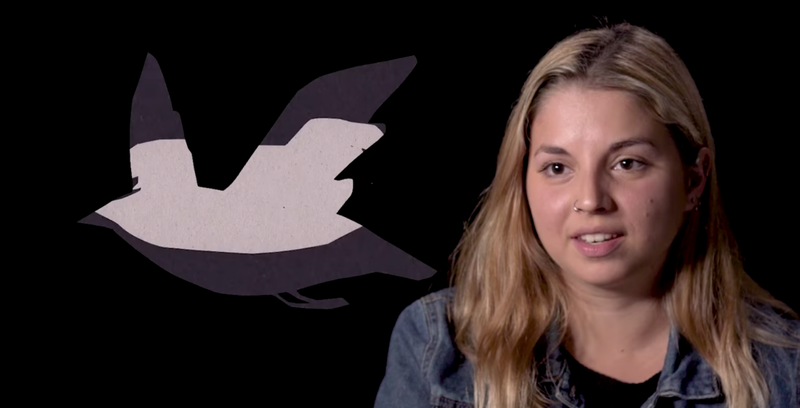Beautiful News: How bathroom conversations are changing government policies
Updated | By Beautiful News
Remember your school bathroom? Rows of fading doors. Rubber-soled shoes squeaking on the off-white tiles.

These toilets aren’t the most luxurious places. But for young girls who are menstruating, it can be a sanctuary in between classes – if they make it to school.
READ ALSO: After a life of dealing drugs, this art teacher paints a second chance
Every month, up to seven million girls are absent because they can’t afford sanitary products. It’s more than an inconvenience; it’s a national crisis. That’s why filmmaker Jessie Zinn picked up her camera and stepped inside this unexpected haven to capture the reality of having a period. By opening up the conversation, she’s contributed to the efforts of menstrual health activists and brought about change on a national level.
WATCH:
Zinn’s four-minute documentary, made in conjunction with Rock Girl and the Western Cape Education Department, was released in 2016. Using film, animation, and voice overs of students, Can I Please Go to the Bathroom? offers a tender visual report on how menstruation hinders young girls. The learners express their frustration that having a period isn’t a choice, yet sanitary items are seen as a luxury and taxed. The additional financial burden, known as tampon tax, has long been the norm.
Shortly after its release, the documentary was announced as a Sundance Ignite Finalist in their “What’s Next?” short-film challenge. Zinn also scooped second prize at the Youth Jury Award at the 2017 Encounters Documentary Film Festival. But the real victory for Zinn and her collective of advocates is the legislative results that followed. As of April 2019, the South African government removed VAT on sanitary items.
This is a major stride in the fight for fairness, as issues of poverty, gender, and inequality intersect at menstrual health. “As any kind of artist, you have the power to contribute to the way people see the world,” Zinn says. We all have a responsibility to speak up. And when we do, real change can and does happen.
For more daily Beautiful News, visit Facebook or Instagram.
Show's Stories
-
Proof that children mirror what they see adults doing
This kid tries to drink water like a tequila shot...
The Workzone with Alex Jay 1 year, 9 months ago -
If you fail your driver's exam, don't do what this man did
A man who failed his driver's exam decided to hire a 'body double' to at...
The Workzone with Alex Jay 1 year, 9 months ago